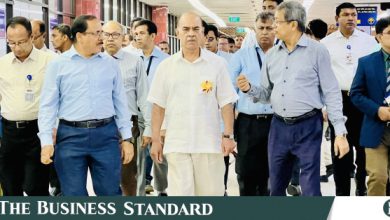State reforms possible only if basic rights protected: Speakers


Expressing concerns over the instances of sectarianism that undermine the anti-discrimination movement’s principles, speakers at a discussion yesterday stressed that state reform is achievable only if fundamental rights are protected for all citizens, regardless of caste or religion.
At the event titled “Democracy and Good Governance in New Bangladesh: Expectations of the Youth,” organised yesterday by the Berlin-based civil society group on International Democracy Day 2024, speakers also emphasised the need for media freedom and a new political system to uphold the principles of the anti-discrimination movement.
Keynote speakers, including Hasnat Abdullah and Arif Sohail, coordinators of the Anti-Discrimination Student Movement, and Samantha Sharmin from the National Citizens Committee, underscored that radical reforms in the electoral system, administrative structure, and judiciary are essential.
TIB Executive Director Dr Iftekharuzzaman, who moderated the event, said, “Developing a political force in the spirit of the anti-discrimination movement is crucial for achieving a new Bangladesh and that leadership will emerge from the movement’s core, with active support from students nationwide.”
He also expressed concerns over incidents of sectarianism and extortion.
Arif Sohail, a coordinator of the student movement from Jahangirnagar University, said the movement aims to secure equality, dignity, and social justice.
“Despite changes in leadership since 1947, autocratic elements persisted. The 2024 movement has enabled public protest in a way that was not possible in 2018, leading to the removal of authoritarianism.”
Samantha Sharmin, the spokesperson for the National Citizens Committee, noted that the concept of a “New Bangladesh” has inspired hope among the youth.
She called for an environment conducive to mass discussion and participation in state reforms, particularly at the rural level, to truly reflect the principle that people are the source of power.
Other speakers included Ariful Islam Adeeb, a member of the National Citizens Committee; Farabi Hafeez, a presenter and media personality; Sadat Hossain, a young fiction writer; and Shimu Nasser, a journalist and fiction writer.



